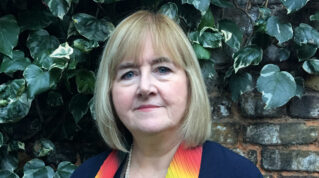History education in schools is much more “secure” than it was 12 years ago, Ofsted has said, but there are still “significant differences” in the quality of teaching.
The findings form part of the inspectorate’s latest subject report on the strengths and weaknesses of how history is taught in school.
A separate report on maths teaching was also published yesterday.
Evidence was gathered by inspectors as part of routine inspections and research visits, and builds on Ofsted’s 2021 history research review.
Chief inspector Amanda Spielman said: “It is great to see that history remains a core part of the school curriculum as the quality of history education continues to improve.”
Here are the key findings.
1. Position of history in schools more ‘secure’
Inspectors found the “position” of history in schools to be “much more secure” than it was 12 years ago when Ofsted last published a report on the subject.
This was because a “trend towards erosion of history as a distinct subject” appeared to have been reversed.
In nearly all primaries visited, history was taught as a separate subject and leaders “typically” made sure enough time was allocated to it.
At secondary, leaders at almost all schools visited also ensured enough time was given to history education.
2. ‘Significant’ work to develop ambitious curriculums
The watchdog noted that in recent years, “there has been significant work in the large majority of primary and secondary schools to develop a broad and ambitious curriculum in history”.
This had consequently had a “significant” impact on the quality of education.
But in many primary schools, heads’ aims were “too broad” and plans for what children should know by the end of Reception were limited to knowledge about ‘time’ and the ‘past’.
In the best examples, leaders had “carefully designed” the curriculum to emphasise particularly important concepts.
Secondary leaders tended to have a “sound rationale” for the substantive knowledge they wanted pupils to develop.
In the best examples, leaders demonstrated “sophisticated” thinking about the content and concepts “that might be most worth emphasising”.
Yet in some schools, leaders “had not considered” what pupils might needs to know about recurring themes at “any particular point in the curriculum”.
3. Gap between primary and secondary has closed…
A gap between history education at primary and secondary appeared to have closed, inspectors noted.
This was because in most primary schools visited, teachers “knew enough” about the content they were teaching.
Ofsted noted that this was “particularly impressive” given the pressures on teachers to develop subject knowledge across a wide range of subjects.
4. … but differences in history teaching persist
Yet inspectors said they found “similar strengths and weaknesses” in teaching across both phases.
In a “significant minority” of primary and secondary lessons, teachers were found to be encouraging pupils to come up with their own judgments in response to questions, “when they lacked the knowledge to answer these meaningfully”.
At primary, “most” leaders had not considered how content choices at Reception or key stage 1 might prepare children for later study.
And at secondary, leaders “did not always” connect sequences of events or the context of the time and place to ensure “pupils understood and learned it”.
The depth in which schools taught periods, societies and developments also varied, with most devoting “significantly” more time to the 19th and 20th centuries than earlier periods.
5. Disciplinary knowledge is also lacking
Primary pupils’ disciplinary knowledge of how historians study the past and construct accounts was “very limited”.
This led to “most” having “significant misconceptions”, including viewing history as a “very limited type of archaeology” that involved digging up objects and “guessing what they were used for”.
In most secondaries, leaders did not plan the disciplinary and substantive knowledge pupils would need to make judgments in response to historical questions or about sources.
And in key stage 3, disciplinary knowledge was “overly influenced” by interpretations of GCSE exam requirements.
6. Support for SEND pupils not effective
Ofsted found that in all schools, support for pupils with special educational needs and disabilities (SEND) was prioritised. But it added that support was “not always as effective as it could be”.
This was because teachers often focused on “adapting” tasks so pupils could complete them, instead of “building their knowledge and skills and addressing gaps” so they could access the curriculum in the longer term.
7. More focus needed on assessment
Ofsted’s perception of assessment for history was pretty damning. It was not “fully developed” in most primaries, and “not used effectively” in around half of secondaries.
“In the best examples we saw, teachers had a clear, shared understanding of the content and concepts that pupils needed to know, and they focused assessment on these,” the watchdog said.
But in both phases, teachers were commonly making “broad judgements” about pupils’ progress, without identifying or addressing specific gaps or misconceptions in their knowledge.
8. Pupils enthusiastic about history
Inspectors concluded that where teachers “took the complexity of history seriously”, pupils responded with enthusiasm.
At primary levels, pupils were “fascinated” by the relationship between local, national and international developments.
And across “many” schools, pupils were “gripped” by the stories of individuals and became “immersed” in detailed study of other times and places.
9. Best school balance ‘richness and complexity’ of the past
Ofsted said that “the very best schools” were those where teachers “carefully balanced” the richness and complexity of the past.
This included “clarity” about how effective emphasis on curriculum, teaching and assessment could help pupils “navigate” the subject with secure and “deepening” knowledge.








Your thoughts